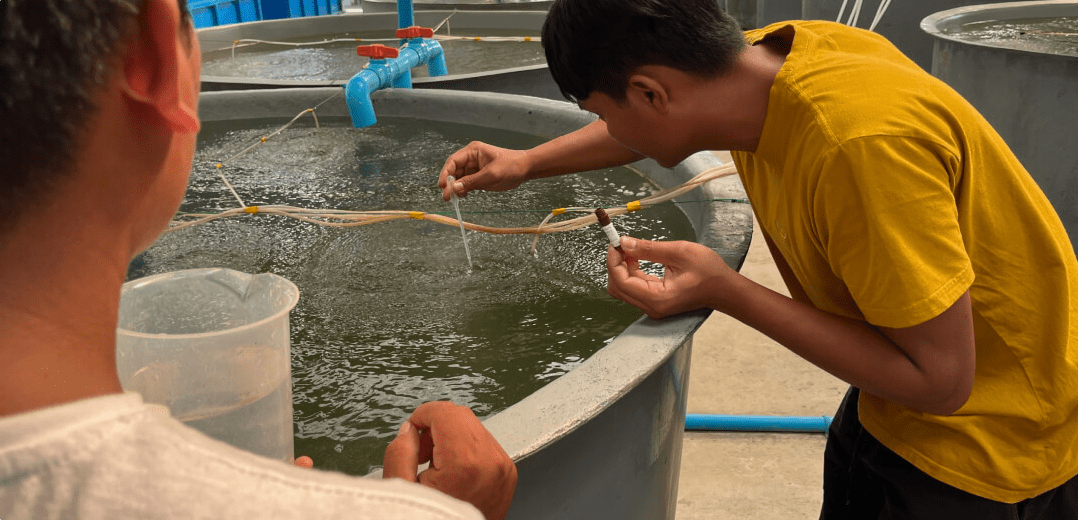Decoding the world of microbiology: A journey to explore the carp polyculture ecosystem
Within the framework of the Bilateral International Cooperation Project between the Vietnam Academy of Science and Technology and the Russian Foundation for Basic Research (code QTRU01.07/19-20), scientists have discovered a new group of carp strains within the Freshwater Carp species (Cyprinus carpio) from the results of molecular genetic data analysis.
The research project was led by Associate Professor, Dr. Nguyen Van Quan from the Institute of Marine Resources and Environment (Vietnam Academy of Science and Technology). On the Russian partner side, it was led by Dr. Sergey Rastorguev from the Kurchatov Institute.
Associate Professor, Dr. Nguyen Van Quan said: Freshwater carp plays an important role economically in the aquaculture industry, due to its high adaptability to the environment and food sources. Historically, carp was the first fish species to be domesticated in China since ancient times. Until now, many strains of carp have been domesticated worldwide, but determining the origin of carp still remains contentious in science.
In this study, 68 European carp samples from 9 domesticated strains and 4 different natural carp populations were genetically mapped using new techniques. The results showed that the domesticated carp strains were divided into two separate groups. Specifically, Group 1 consisted of carp strains from central Europe, and Group 2 consisted of carp strains originating from Russia, which are cold-resistant. Scientists have pointed out that the hybridization of domesticated carp strains with natural Amur carp and the selection through generations of hybrids adapted to unfavorable environmental conditions have formed the second group. Thus, the results of this study provide additional understanding of the genetic evolution history of current carp populations from natural and artificial carp populations, including the mixing of natural fish gene sources with domesticated carp.

In particular, in this study, scientists used molecular markers to trace the origins of current Russian carp strains, without relying on any historical data such as breeding maps or breeding history. Therefore, the research results provide an important scientific basis for applying molecular biology methods in assessing the genetic inheritance of aquaculture breeds, applicable in breeding and conservation.
The results of this study provide background data to assess the genetic impact of Vietnamese carp strains on European carp strains, which will also be published in the near future.













